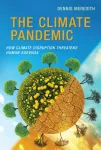Study shows those with a higher omega-3 index are more protected from severe COVID infection
Omega-3 fatty acids, especially EPA and DHA, might be protective against contracting and/or suffering adverse outcomes of COVID-19 infection
2023-03-01
(Press-News.org) A study just published in the American Journal of Clinical Nutrition (AJCN) explored the role of omega-3 fatty acids, especially EPA and DHA, and whether they might be protective against contracting and/or suffering adverse outcomes of COVID-19 infection.
The study compared the risk for three COVID-19 outcomes: 1-testing positive, 2-hospitalization, and 3-death as a function of baseline plasma DHA levels.
DHA levels (% of total fatty acids) were measured by Nuclear Magnetic Resonance (NMR) spectroscopy but were converted to Omega-3 Index (red blood cell EPA+DHA%) for this analysis. The three outcomes and relevant covariates were available for 110,584 subjects (hospitalization and death) and for 26,595 ever-tested subjects (positive COVID-19 PCR test result) via the UK Biobank prospective cohort study. These COVID-19 outcomes were assessed between January 2020 and March 2021.
In the fully adjusted models, subjects in quintile 5 (with the highest Omega-3 Index levels) were 21% less likely to test positive than those in quintile 1, and the risk for a positive test was 8% lower for each 1-SD (standard deviation) increase in plasma DHA%. Quintile 5 subjects were also 26% less likely to be hospitalized than those in quintile 1, and risk for hospitalization was 11% lower per 1-SD increase in DHA%.
For death with COVID-19, risk was monotonically lower through quintile 4, but in quintile 5, the risk reduction was partially attenuated and became non-significant. Estimated Omega-3 Index values across the five DHA quintiles ranged from 3.5% (quintile 1) to 8% (quintile 5).
“These values comport well with the Omega-3 Index risk cut points [originally proposed in 2004 for death from cardiovascular disease] of <4% (high risk) and >8% (low risk) and imply that these target levels apply to COVID-19 outcomes as well,” researchers noted in their paper.
The investigators also point out that South Korea and Japan have reported an extremely low severity of COVID-19 disease and that although masking practices, social distancing policies and other population-wide interventions no doubt contributed to this, it is interesting to note that the Omega-3 Index values of healthy South Korean and Japanese individuals are about 8-12% and 7–11% respectively, which is much higher compared to an Omega-3 Index of 4-5% in Western populations such as the United States.
“A worldwide pattern linking higher omega-3 fatty acid intakes with lower rates of death with COVID-19 was documented by Vivar-Sierra et al. Although only suggestive, this observation adds further support for a potential role of omega-3s EPA and DHA in the prevention of fatal COVID-19 disease,” the researchers said.
“This study confirms previous findings that low omega-3 status is associated with increased risk for hospitalization with COVID-19. We extended these findings by also showing reduced risk for testing positive with the infection and by providing evidence that the risk for death may also be reduced,” said Dr. William S. Harris, PhD, FASN, President, Fatty Acid Research Institute (FARI). “Furthermore, we identified the Omega-3 Index levels associated with the least (<4%) and greatest (>8%) protection from COVID-19. Altogether these results support the practice of increasing consumption of oily fish like salmon or omega-3 fish oil supplements as a potential risk reduction strategy when it comes to COVID-19.”
Dr. Philip Calder, who wrote an editorial accompanying this publication, said these findings suggest that consuming more long-chain omega-3 fatty acids (EPA and DHA) should be encouraged as a strategy to reduce the impact of the ongoing SARS-CoV-2 pandemic and of future respiratory virus infection outbreaks. Dr. Calder, BSc(Hons), PhD, DPhil, RNutr, FSB, FAfN, is Professor of Nutritional Immunology within Medicine at the University of Southampton, UK.
<END>
AJCN Study link: https://www.sciencedirect.com/science/article/pii/S0002916522105356?dgcid=author
AJCN Editorial link: https://www.sciencedirect.com/science/article/pii/S0002916522105587?dgcid=author
Media Inquiries:
Becky Wright, Marketing Communications Director, OmegaQuant
Email: becky@omegaquant.com
Phone: +1-201-675-0197
Website: omegaquant.com; www.faresinst.org
About the Fatty Acid Research Institute (FARI)
The Fatty Acid Research Institute (FARI) is a non-profit research and education foundation created by William S. Harris, PhD, FACN. Dr. Harris is also the founder of OmegaQuant Analytics. FARI was founded in order to accelerate discovery of the health effects of fatty acids, most notably, the long chain omega-3 fatty acids EPA and DHA. FARI researchers and scientists will focus single-mindedly on publishing high-quality research studies on the multiple relationships between fatty acid levels and human (and animal) health outcomes. These studies will improve the ability to predict risk for disease, and more importantly, suggest ways to reduce risk by changing our diets and/or supplementation regimens. www.faresinst.org
END
ELSE PRESS RELEASES FROM THIS DATE:
2023-03-01
Certain diseases, including Alzheimer’s, are currently considered “undruggable” because traditional small molecule drugs can’t interfere with the proteins responsible for the illnesses. But a new technique that specifically targets and breaks apart certain proteins — rather than just interfering with them — may offer a pathway toward treatment. Researchers reporting in ACS Central Science have, for the first time, designed a compound that targets and breaks down a posttranslationally modified protein closely associated with Alzheimer’s disease.
Researchers have been exploring targeted protein degradation (TPD) as a way to get at ...
2023-03-01
Wastewater can provide clues about a community’s infectious disease status, and even its prescription and illicit drug use. But looking at sewage also provides information on persistent and potentially harmful compounds, such as per- and polyfluoroalkyl substances (PFAS), that get released into the environment. Now, researchers in ACS’ Environmental Science & Technology Letters report an unexpected source of these substances in wastewater systems — toilet paper.
PFAS have been detected in many personal care products, such as cosmetics and cleansers, that people use every day and then wash down ...
2023-03-01
PULLMAN, Wash – Glacier National Park is home to around 50 Canada lynx, more than expected, surprising scientists who recently conducted the first parkwide occupancy survey for the North American cat.
The Washington State University-led survey reveals the iconic predator resides across most of Glacier’s 1,600 square-mile landscape, although at lower densities than in the core of its range further north.
“The population in the park is still substantial and exceeded our expectations,” said Dan Thornton, WSU wildlife ecologist ...
2023-03-01
The United States Patent and Trademark Office has awarded Fraunhofer USA with a patent for algorithms that detect and quantify air leakage from single-family homes using data from commercially available communicating, thermostats.
Outdoor air can infiltrate homes through many pathways, including windows and doors, poorly sealed connections between exterior walls and basements and attics, and unsealed wall, floor, and ceiling penetrations in occupied spaces. Prior field studies have found that most homes have appreciable air leakage, which accounts for approximately a quarter of space conditioning energy consumption. Not only can air leakage significantly increase home energy consumption, ...
2023-03-01
A new book, The Climate Pandemic: How Climate Disruption Threatens Human Survival, concludes that humans will not survive the unrelenting onslaught of climate disruption. The e-book is available free on Amazon March 1-5.
“As horrific as the COVID-19 pandemic has been, its effects pale in comparison to the coming catastrophe from climate disruption,” wrote author and veteran science writer Dennis Meredith. “In fact, the climate pandemic will steadily worsen, even bringing our species to extinction, unless we launch a global revolution to abandon our carbon-dependent energy system.
“Given the evidence in this book, I see only a vanishingly small possibility of ...
2023-03-01
CHAMPAIGN, Ill. — A new book from University of Illinois Urbana-Champaign anthropology professor Kathryn Clancy takes an unflinching look at the many ways humans have struggled – and often failed – to understand one of the greatest mysteries of human biology: menstruation.
In “Period: The Real Story of Menstruation,” Clancy first focuses on the myriad ways human societies, their leaders, scientists and health practitioners have gotten it wrong – from myths and taboos about the purpose and health effects ...
2023-03-01
Researchers have discovered how a gene that increases the risk of developing genetic heart disease functions, paving the way for new treatments.
The study, led by Murdoch Children’s Research Institute and published in Nature Cardiovascular Research, has revealed a new pathway for how children and adults develop cardiomyopathy, a group of diseases that affect the heart’s ability to pump blood around the body.
Heart disease is the leading cause of death worldwide. Patients with cardiomyopathy, a form of heart disease ...
2023-03-01
Researchers from Korea Advanced Institute of Science and Technology and University of Texas at Dallas published a new Journal of Marketing article that examines whether direct-to-consumer advertising for robotics surgery is effective at swaying patients to choose it over other types of procedures.
The study, forthcoming in the Journal of Marketing, is titled “The Role of Advertising in High-Tech Medical Procedures: Evidence from Robotic Surgeries” and is authored by Tae Jung Yoon and TI Tongil Kim.
Robotic surgery and the ethics ...
2023-03-01
Taking vitamin D supplements may help ward off dementia, according to a new, large-scale study.
Researchers at the University of Calgary’s Hotchkiss Brain Institute in Canada and the University of Exeter in the UK explored the relationship between vitamin D supplementation and dementia in more than 12,388 participants of the US National Alzheimer's Coordinating Center, who had a mean age of 71 and were dementia-free when they signed up. Of the group, 37 per cent (4,637) took vitamin D supplements.
In the study, ...
2023-03-01
Rounding checklists can help hospital care teams improve patient outcomes, and new research points to the potential for patient-specific checklists as a valid way to effectively translate the latest evidence into clinical practice.
These checklists can be helpful tools during daily rounds when multidisciplinary members of the patient care team convene to discuss each patient’s status and care plan. If too complex or generic, the checklists may instead become a burden, taking up valuable time with minimal impact.
One way to customize rounding checklists is to have an individual serve as a checklist prompter, listening to the conversation, eliminating ...
LAST 30 PRESS RELEASES:
[Press-News.org] Study shows those with a higher omega-3 index are more protected from severe COVID infection
Omega-3 fatty acids, especially EPA and DHA, might be protective against contracting and/or suffering adverse outcomes of COVID-19 infection



